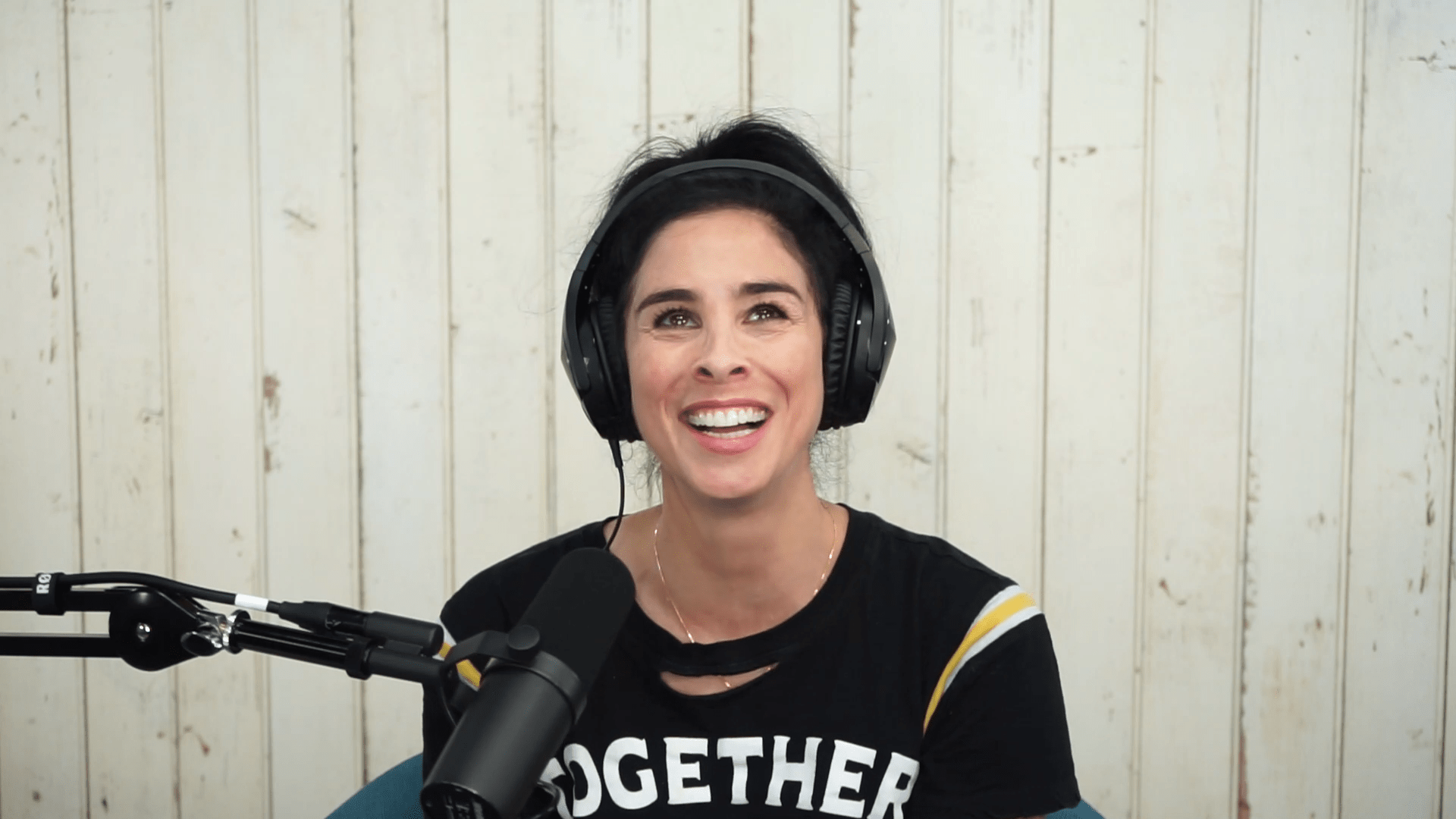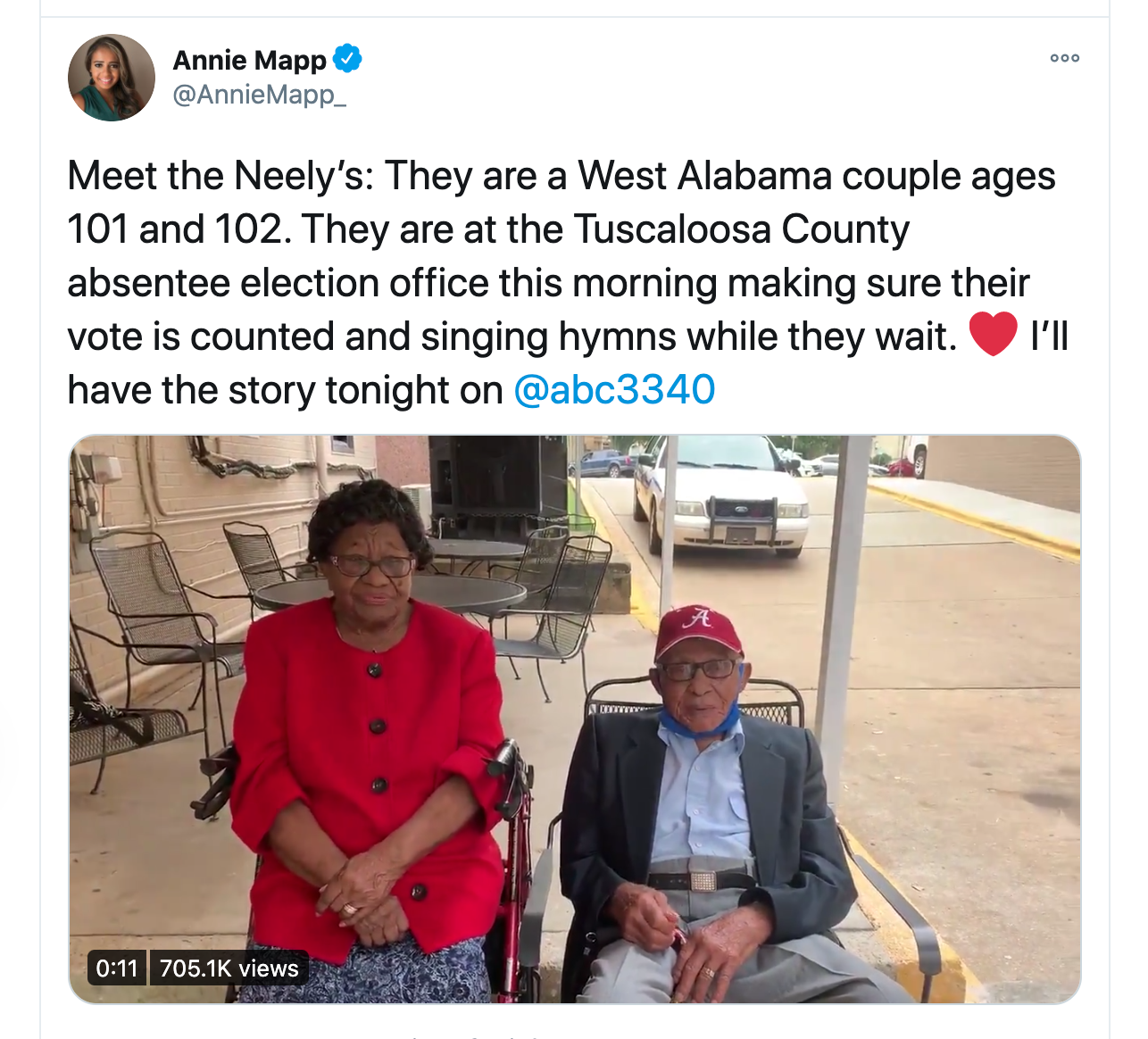
A version of this article was published in It’s Not Just You, a weekly newsletter from TIME. Subscribe here to get a weekly serving of big-hearted advice delivered to your inbox.
Hello friends, I’m so glad you’re here. ☀️ Below you’ll find my interview with Sarah Silverman about her podcast and living a more examined life, plus some great science-based wellness tips in our Coping Kit from TIME’s health team, and other goodies.
In the meantime, let’s talk about the week we have ahead of us. I remember when the phrase “anything is possible” was something you’d write in a graduation card rather than a reference to the gods of chaos. But here we are at peak 2020 uncertainty as we await election results and hope for vaccine approvals or clarity in any other part of our lives.
Given that anything really is possible, the prospect of our poor overworked brains trying to game out all scenarios is both exhausting and counterproductive, I would like to suggest something slightly radical. How about we call a truce with uncertainty for the moment. Invite it in, see if it can be tapped for something other than creating anxiety.
We can start by not wasting our energy trying to push uncertainty away in all the usual ways–like obsessive scrolling for any morsel of information, chart, or data that will give us a fleeting feeling of control or a glimpse of the future, bad or good. The urge is strong. Even primates crave information about the future, like clues about what kind of treat they’re about to get. Each clue they got resulted in a hit of dopamine which just made them want more. And the thing is, with a virus or even this election, there’s information that can help us understand what’s happening and sometimes what we can do, but certainty isn’t in our Twitter stream.
I’ve learned about our capacity for tolerating uncertainty from those for whom uncertainty is a constant companion. Friends and loved ones who’ve had cancer and will always have to endure waiting for the results of their regular check-in scans year after year, or those with mental illness that comes roaring back without warning. That perspective is my fuel for gratitude–an invitation to cherish the ordinary non-crisis days rather than losing them to worry over what might happen the next day.
And the beauty of this moment is that anything can happen. These days of anxiety and peril have also been a catalyst that set some people free to figure out what they really want to do and where they want to live. Lots of us are asking how we want to spend our one precious life. As the wise Rebecca Solnit writes: “Hope is an embrace of the unknown and the unknowable, an alternative to the certainty of both optimists and pessimists.”
Pema Chödrön on Lightening Up 🌟
“Maybe the most important teaching is to lighten up and relax. It’s such a huge help in working with our crazy mixed-up minds to remember that what we’re doing is unlocking a softness that is in us and letting it spread. We’re letting it blur the sharp corners of self-criticism and complaint.”
From When Things Fall Apart: Heart Advice for Difficult Times. More from the Pema Chodron Foundation.
❤️Ask Sarah Silverman Anything…
I was excited to talk with Sarah because of the soul-fortifying way she answers audience questions in her new podcast. If the queries are sincere (i.e. not about her boobs), her advice to callers is wise and nuanced and unselfconsciously kind. (Almost Buddhist.) Don’t get me wrong; the ribald Sarah appears in these sprawling episodes too. There’s lots of pube talk and scalding rants about the transgressions of powerful rich people.
The Sarah Silverman Podcast was born when the pandemic stopped her stand-up touring. It’s the first time she hasn’t toured since she was 18, and she’s still iterating on the podcast week to week. It’s like living on a learning curve, she says. A very public one. “Listen, there’s so much I do wrong and mess up, and if that can help anybody, great. Because I think living an unexamined life is kind of how we got here.” Responding to her audience with empathy was always part of the plan—perhaps even more essential now that much of what we talk about these days, losing friends to COVID, losing relatives to political divides, is not the stuff of jokes.
People change because of feelings, not facts
To the caller thinking of cutting off contact with his Trump-loving grandpa, Silverman offered this sweet bit of universal wisdom: “Feeling judged doesn’t make people open” to change, she said; “they go toward where the love is. Find a place where you can connect. Bond over a procedural [drama]. Ask him about his life, ask about what made him laugh as a kid.” And generally, she speaks in terms of love when talking about the clash of realities we’re seeing in the U.S.: “You don’t even really change people’s minds often with facts or poll numbers or things like that. People are really only changed [by] feelings. If they’re going to be changed at all, they’ll be changed by loving you, this person who embodies everything that they’re against.”
Another caller was being upset with himself over the way he felt about his sibling becoming a trans man. Silverman’s response was a clever path to empathy: “His woke self knows how he should feel about it. But that’s not how he feels about it.” Then she pointed out that his discomfort was the mirror image of how his now-brother felt when he knew how he was supposed to feel in a body that presented as female, but he didn’t feel that way.
Sarah’s own family bonds likely inform such advice; she sees her dad every week for dinner, wears her late theater-director mom’s paint-splattered overalls, and Zooms weekly with the global Silverman United clan.
Change the Channel
I ask if she has advice on how to manage our emotions as we head into this unholy mash-up of pandemic, cultural division and economic stress. She recalls what she told her mom during the last fraught presidential election when the news was making her distraught: “Sometimes you’ve got to change the channel. Watch a Bones.” Truly, it’s possible to be too engaged, so give yourself a few hours of apathy. “If you care about this election you want to be involved, you do have to give yourself a little distance. You have to take care of yourself,” she says. “it makes you more effective as a citizen.”
If it’s hysterical, it’s historical
Seriously, though, “It’s important to be a detective in your own life, and figure out where it is coming from. People will drive 10 different cars before they make a decision about what car they want. Put a little elbow grease into your own history and what makes you lose your sh*t … My therapist has a saying: If it’s hysterical, it’s historical. So when you go bananas over something perceivably small to others, there’s probably something that’s bringing up.”
Then she laughs. “Listen,” she says, “I’m just spitting out stuff I learned.”
Aren’t we all.
MOMENT OF GOOD 💐

Meet Lonnie and Clara Neely who are 101 and 102 years old. They’ve been married since Dec. 6, 1937. This year they voted absentee and were moved to sing “Sweet Low Sweet Chariot.” Give a listen here.
COPING KIT ⛱️
COMFORT DOG
Send your most comforting dog pix here: susanna@time.com
Have suggestions, ideas, questions? Email me at: Susanna@time.com
A version of this article was published in It’s Not Just You, a weekly newsletter from TIME. Subscribe here to get a weekly serving of big-hearted advice delivered to your inbox.
More Must-Reads from TIME
- Donald Trump Is TIME's 2024 Person of the Year
- Why We Chose Trump as Person of the Year
- Is Intermittent Fasting Good or Bad for You?
- The 100 Must-Read Books of 2024
- The 20 Best Christmas TV Episodes
- Column: If Optimism Feels Ridiculous Now, Try Hope
- The Future of Climate Action Is Trade Policy
- Merle Bombardieri Is Helping People Make the Baby Decision
Contact us at letters@time.com